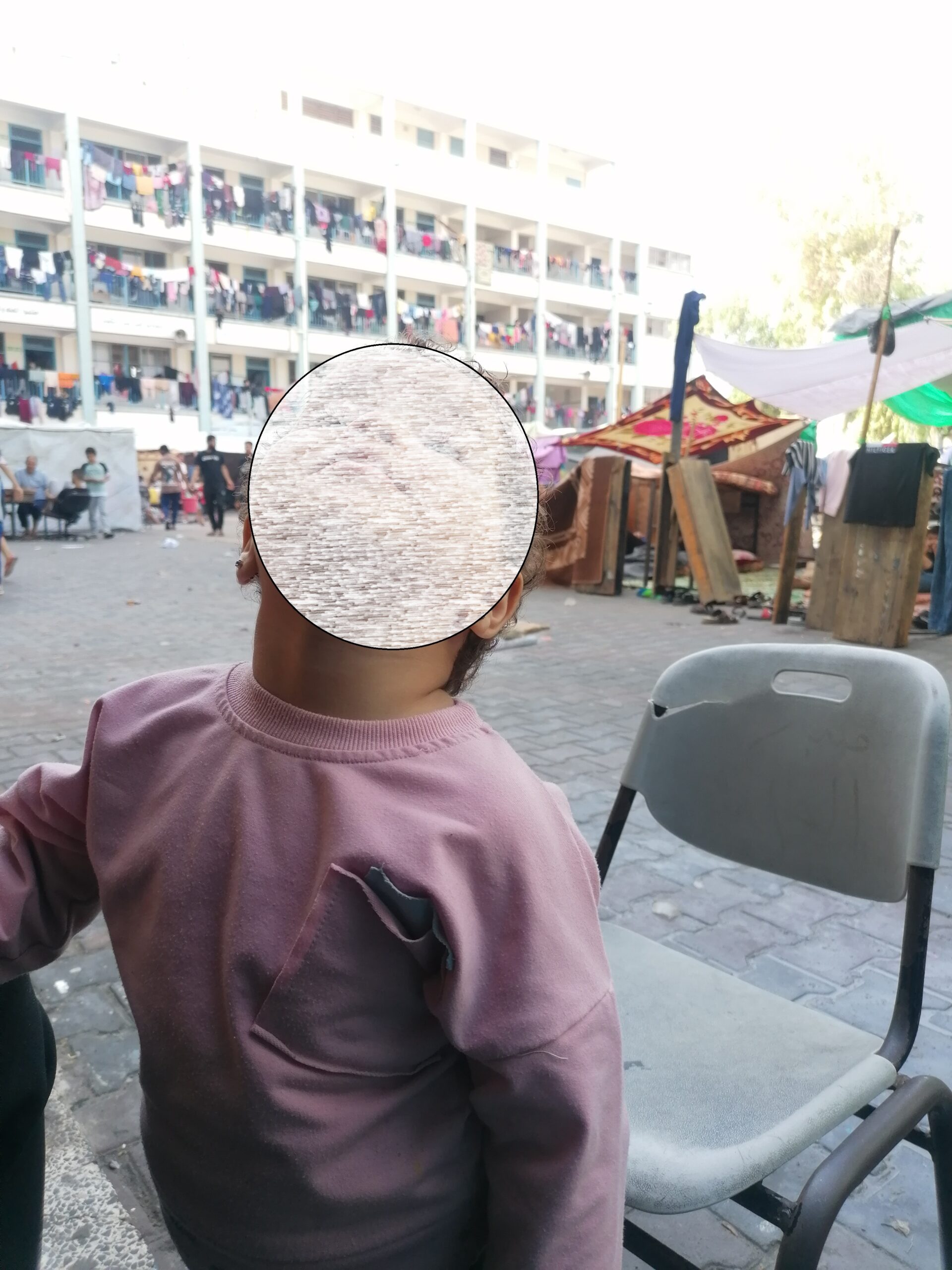The day began with stubborn denial. We had heard unsettling reports—urgent messages and terrifying whispers of a mass evacuation order from the north of Gaza. But we clung tightly to disbelief, telling ourselves it couldn’t be true. Everyone around us was buzzing with fear, but inside our home, we remained frozen, trying to convince ourselves that it was just psychological warfare, another rumor to rattle us.
That morning, I left the house like it was any other day. I went down to the local market, picked up food and water, essentials for the house. I walked the streets, thinking I still had time, unaware that this would be the last day I would ever see my street the way I knew it. The air was heavy with tension, but I moved with mechanical routine. It felt unreal.
Later that day, my young daughter came to me with a sparkle in her eye and asked, “Baba, can we go to Kazem today?”—a local shop she adored for its ice cream. It was her little slice of joy in an increasingly joyless world. I smiled, ruffled her hair, and told her, “Tomorrow, habibti.” I didn’t know then that tomorrow would bring anything but ice cream.
As evening approached, my phone rang. It was my brother calling from Nablus. His voice was unsteady, and I could hear the urgency in his words. He told me plainly: “You need to leave. Now.”
Moment broke me
That moment broke me. I hadn’t cried in years. Not through loss, not through war. But this time, my tears fell freely. It was the first time since this war began that I felt helpless. The decision was mine, and the weight of it unbearable. I had to decide not just for myself, but for my pregnant wife, our daughters, my elderly parents, my sister, and my brother’s family.
I tried to convince my wife’s uncle—my aunt’s husband—to leave with us. To bring the children and join us in the south. But he refused. He said he’d rather stay in his home. I respected his decision, but it tore at me.
Then came the chaos. We began packing whatever we could carry. The streets were a blur of people—some crying, others silent. Some carrying bags, some carrying nothing at all. Everyone was looking for a way out. We searched for a car for what felt like forever. Transportation was scarce. When we finally found one, we piled in with hearts pounding, knowing every second counted.
Sound of explosions
As we drove, the sound of explosions echoed around us. Missiles streaked across the sky. The roads were full of people—families with children, people on foot, pushing carts, carrying the sick and elderly. No one knew where they were going. We were all just trying to escape.
Our destination was Deir al-Balah. We didn’t have a specific place—just a vague plan to find any school far from the borders. When we arrived, we were met with exhaustion and rejection. Schools were overflowing. Thousands of displaced families had already taken every corner, every room. We turned to people we thought were friends, even relatives—but they looked away. Some didn’t answer their phones. Others made excuses. It was a harsh reminder of how war reshapes relationships.
Eventually, we found a school with a little space left. My wife’s family, my mother, my sister, and my sister-in-law managed to squeeze into a single classroom—alongside more than fifty women. We, the men, were left to the hallways and the yard. We laid down pieces of cloth and tried to sleep under the open sky.
But there was no sleep that night. Israeli evacuation messages played nonstop on the radio, adding to the anxiety that already kept our eyes open. We huddled close, listening for any distant noise that could signal danger. Our hearts refused to rest.
And yet, amid all the fear, the rejection, and the filth, one thing kept us grounded: we were together. We were alive. And for now, that fragile thread of unity was all we had to hold onto

Gaza War: Day Seven – October 13, 2023



Leave a Reply